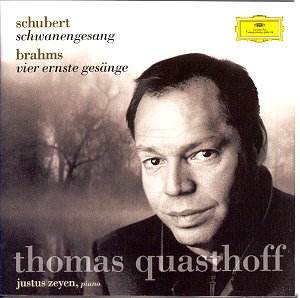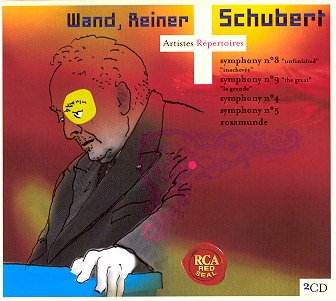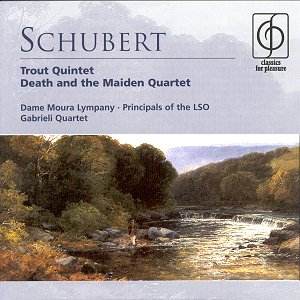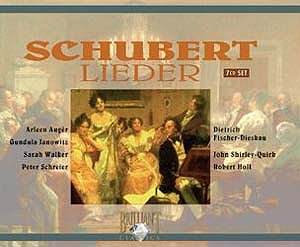
Composer: Johannes Brahms, Franz Schubert
Works: Schubert: “Schwanengesang”; Brahms: “Vier Ernste Gesänge”
Performers: Thomas Quasthoff (bass-baritone), Justus Zeyen (piano)
Recording: Bavaria Musikstudios, Munich, December 2000
Issue Date: 30 July 2001
Label: Deutsche Grammophon DG 471 030-2
Duration: 65:49
In this remarkable recording, bass-baritone Thomas Quasthoff collaborates with pianist Justus Zeyen to present a profound interpretation of Schubert’s “Schwanengesang” and Brahms’ “Vier Ernste Gesänge.” The pairing of these two late works is not only audacious but also illuminates the finality and depth both composers imparted to their respective oeuvres. This disc, released by Deutsche Grammophon, represents a compelling synthesis of interpretative insight and vocal artistry worthy of scholarly attention.
Schubert’s “Schwanengesang,” a posthumously published collection of songs, is often debated in terms of its cyclical nature. Quasthoff’s decision to perform these songs as a cohesive unit seems to echo Schubert’s own intention to convey an overarching emotional landscape, despite the disparate origins of each piece. His interpretation is imbued with a sense of narrative continuity; the baritone’s rich timbre and nuanced phrasing allow the listener to traverse the emotional terrain from the yearning of “Liebesbotschaft” to the stark resignation of “Der Doppelgänger.”
In “Liebesbotschaft,” Quasthoff’s delivery is marked by a legato line that caresses the text with a warmth that transcends mere vocal technique. The tender intimacy of his interpretation evokes a deep sense of longing, although comparisons to John Mark Ainsley’s luminous tenor reveal a distinct contrast in emotional inflection; Ainsley’s youthful ardor in this piece arguably captures the spirit of hope more vividly. However, Quasthoff’s approach in “Am Meer” is nothing short of sublime, where his ability to convey melancholy through subtle dynamic shifts and exquisite shading brings the song’s poignant imagery to life.
Turning to Brahms, his “Vier Ernste Gesänge” serves not only as a meditation on mortality but also as a testament to the composer’s intimate confrontation with life’s transience. Quasthoff’s affinity for Brahms is palpably evident; his tonal richness and interpretative depth resonate with the somber gravity of these works. The opening song, “Denn es geht dem Menschen wie dem Vieh,” is imbued with a visceral urgency, as Quasthoff navigates Brahms’ complex harmonic language with both fervor and clarity. The interplay between voice and piano is masterfully executed, with Zeyen’s accompaniment providing a robust yet sensitive foundation that enhances the overall dramatic arc.
Quasthoff’s interpretative choices often reflect a deep understanding of the text, especially in the Brahms cycle, where the existential themes demand an introspective engagement. His ability to convey the “muscular reason” described in the liner notes becomes especially apparent in “O Tod, wie bitter bist du,” where his vocal color and dynamic control poignantly articulate the bitter confrontation with death. Here, Quasthoff does not merely sing the words; he embodies their weight, drawing the listener into a shared contemplation of mortality.
Zeyen’s role as the pianist cannot be overstated. His playing is both poetic and virtuosic, providing a seamless dialogue with the voice. The engineering of this recording captures the subtleties of their interplay, allowing for an intimate listening experience. The clarity of the piano sound and the warmth of Quasthoff’s voice are beautifully balanced, facilitating a communicative exchange that feels both immediate and profound.
In comparison to other notable recordings, Quasthoff’s interpretations stand out for their emotional honesty and technical prowess. While Rolfe Johnson’s interpretations of the Schubert songs have garnered acclaim, Quasthoff’s approach in “Die Taubenpost” is masterful, with his control over the appoggiatura on “Sehnsucht” revealing a level of artistry that transcends mere vocal execution. The way he colors the word “treuen” at the close of the song provides a moment of sheer beauty that is difficult to rival.
The recording quality is exemplary, with a clarity that allows the listener to appreciate the intricate details of both voice and piano. The ambient acoustics of Bavaria Musikstudios provide an ideal setting, enhancing the warmth and intimacy of the performance while preserving the dynamic range of both performers.
This recording of Schubert and Brahms, featuring Thomas Quasthoff and Justus Zeyen, is not merely a collection of songs; it is a profound exploration of human emotion and artistic expression. Quasthoff’s interpretative depth and Zeyen’s sensitive accompaniment create a listening experience that resonates with the listener long after the final notes fade. This release is essential for enthusiasts of the repertoire and serves as a significant contribution to the understanding of these late masterpieces, reinforcing the enduring power of song as a vessel for both personal and universal truths.



